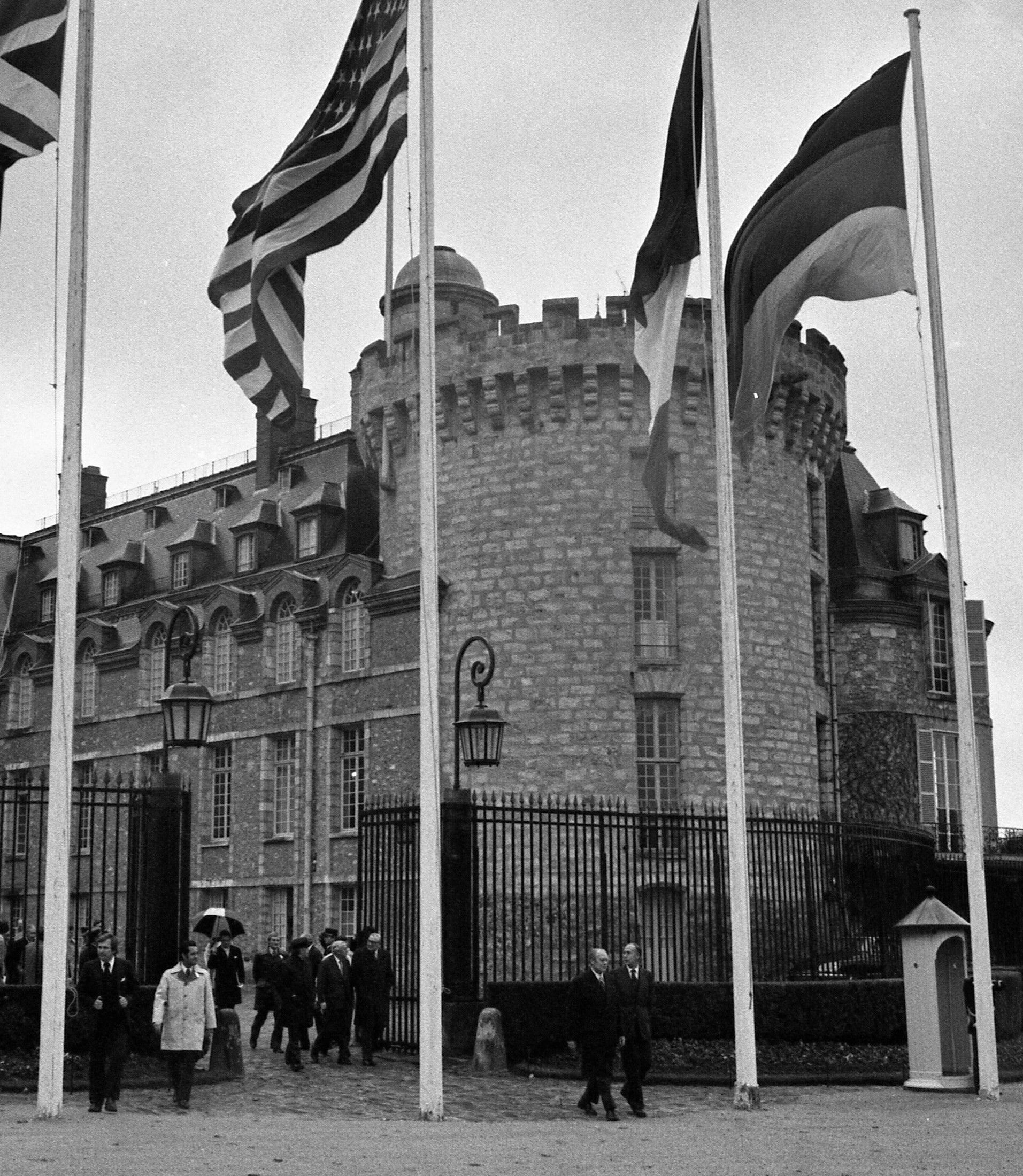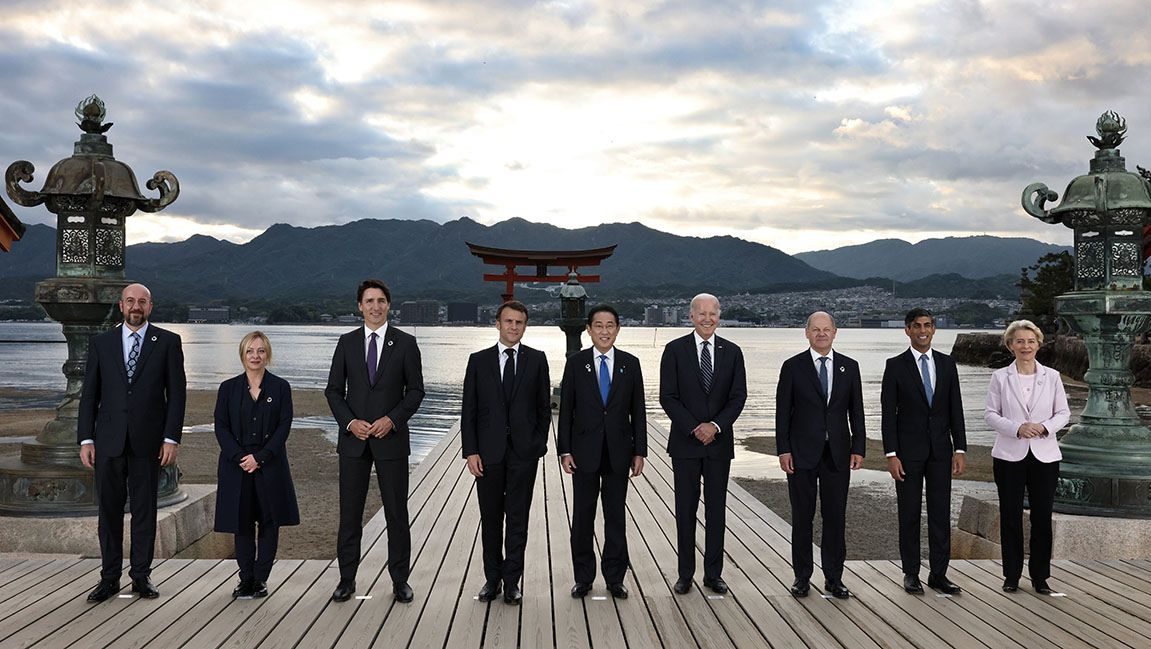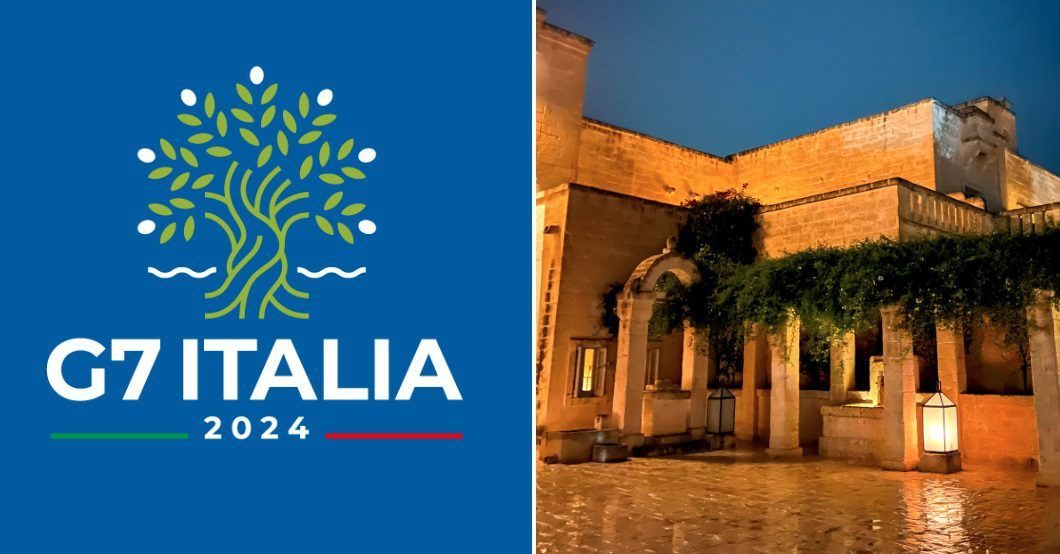From June 13 to 15, 2024, Italy will host the G7 summit. The event, to be held in Apulia, brings together annually the heads of state of seven of the most economically and politically advanced nations on the planet-Italy, France, Germany, the United Kingdom, Japan, Canada, and the United States of America.
Birth
It was 1975 when the first meeting was held in Rambouillet, France: the goal was to create a platform for intergovernmental cooperation that could cope with the growing economic instability of those years.

In fact, between 1971 and 1975, as much the crisis of the international economic rules made in 1944 in Bretton Woods, as much as the abrupt rising oil prices and its derivatives, concerted by OPEC nations in open opposition to NATO and the United States, Israel’s historical allies (at that time in conflict with Egypt and Syria), led the West to plunge into a severe recession.
In 1976, with the admission of Canada, the G7 took on its current configuration, then broadening its scope and goals over time: no longer just financial issues, but rather the creation of A shared agenda on major global issues. A development that in recent years has also sparked the first ministerial-level meetings.
How the G7 works
Each year the leadership of the Forum is rotated to one of its member states, which accepts the task of not only hosting the event, but also setting the full agenda for the work, establishing the main priorities and objectives. Unlike other International Organizations, the G7 therefore does not operate through a permanent organizational structure, and does not rest on any founding treaty.
Despite these ‘shortcomings,’ the event continues to exert significant influence on the international chessboard, bringing together countries representing more than 62 percent of the world’s net wealth. The summit concludes with the adoption of a communiqué, guaranteeing the political commitments made during the negotiations.

Previously the subject of criticism for its limited global representativeness, the G7 took a significant step in 1999 in expanding its round table, thus giving rise to the G20. Since then, this parallel event has annually brought together leaders from 19 of the world’s most industrialized countries, along with delegates from the European Union and the African Union.
2024: the presidency is Italian
This year, for the seventh time in its history, the G7 presidency falls to Italy. The 20 ministerial meetings will be held between March and November in different Italian cities (Milan, Turin, Cagliari among others). Between June 13 and 15, however, it will be the turn of heads of state and government, who will meet at Borgo Egnazia in Puglia.
Among the agreed prioritiesis the defense of the international balance based on the rule of law: both the Russian invasion of Ukraine and the tragic situation in Gaza will be topics of focus.
Ample space, it is hoped, will also be given to discussion of the major challenges of our times, such as climate emergency and social inequalities. With this in mind, increasing importance will have to be given to the construction of equal relations with developing countries (particularly Africa and the Indo-Pacific region), away from the predatory logics of the past.

Taking center stage today is the issue of Artificial Intelligence, for which-following the warnings of the Italian agenda-it will be necessary to establish governance mechanisms that can regulate in detail its control and areas of application.
What are the expectations, in conclusion? The hope is that such meetings can be translated once and for all into concrete action. Although a certain amount of skepticism remains, primarily related to the complex issues on the plate and the often sharp disagreements among the various members.
To posterity the arduous judgment.

